Sites 2024-2027
 THE CHINESE HISTORICAL SOCIETY OF SOUTHERN CALIFORNIA (CHSSC) was organized in 1975 to bring together people with a mutual interest in the important history and historical role of Chinese and Chinese Americans in Southern California; pursue, preserve and communicate knowledge of this history; and promote the heritage of the Chinese and Chinese American community in support of a better appreciation of the rich, multicultural society of the United States. The historical society was established to discover and recognize our pioneers and their history. CHSSC strives to increase awareness of Chinese American heritage through public programs, education and research. https://chssc.org/
THE CHINESE HISTORICAL SOCIETY OF SOUTHERN CALIFORNIA (CHSSC) was organized in 1975 to bring together people with a mutual interest in the important history and historical role of Chinese and Chinese Americans in Southern California; pursue, preserve and communicate knowledge of this history; and promote the heritage of the Chinese and Chinese American community in support of a better appreciation of the rich, multicultural society of the United States. The historical society was established to discover and recognize our pioneers and their history. CHSSC strives to increase awareness of Chinese American heritage through public programs, education and research. https://chssc.org/
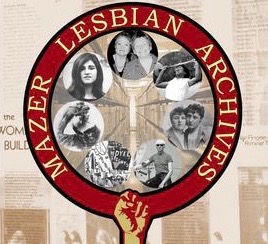 JUNE L. MAZER ARCHIVES is the largest major archive on the West Coast dedicated to preserving and promoting lesbian and feminist history and culture. By creating a safe place for women to explore the richness of lesbian history, perhaps adding to it themselves, we are paving the way for future generations to understand more fully their own identity and history and help maintain this vital link to their own past. We are a vital Lesbian and feminist community resource committed to sharing our history across generations, ethnicity, race, and personal belief systems by collecting, preserving and making available unique memorabilia in a safe and welcoming environment. http://www.mazerlesbianarchives.org/
JUNE L. MAZER ARCHIVES is the largest major archive on the West Coast dedicated to preserving and promoting lesbian and feminist history and culture. By creating a safe place for women to explore the richness of lesbian history, perhaps adding to it themselves, we are paving the way for future generations to understand more fully their own identity and history and help maintain this vital link to their own past. We are a vital Lesbian and feminist community resource committed to sharing our history across generations, ethnicity, race, and personal belief systems by collecting, preserving and making available unique memorabilia in a safe and welcoming environment. http://www.mazerlesbianarchives.org/
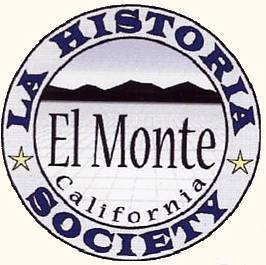
LA HISTORIA HISTORICAL SOCIETY MUSEUM is a 501C3 nonprofit organization established in 1998 by residents of the El Monte and South El Monte barrios. The museum’s archival collection focuses largely on visual media and has begun capturing individual narratives through oral histories. La Historia Historical Society Museum aims to make lasting contributions to the cultural identity of Mexican American lives in El Monte and South El Monte by preserving the legacy of its communities. https://www.lahistoriamuseum.org/
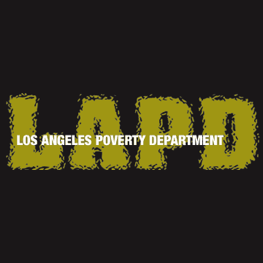 SKID ROW HISTORY MUSEUM & ARCHIVE at the Los Angeles Poverty Department houses a living archive of primary and secondary source material on the low income residential community of Los Angeles Skid Row. Primary materials include numerous videos and transcribed interviews with people living and working in Skid Row whose efforts have contributed to envisioning and creating the deep social resources of this recovery neighborhood while resisting its displacement. The archives provide a cultural and social history of the Skid Row Neighborhood. https://www.lapovertydept.org/skid-row-history-museum-archive/
SKID ROW HISTORY MUSEUM & ARCHIVE at the Los Angeles Poverty Department houses a living archive of primary and secondary source material on the low income residential community of Los Angeles Skid Row. Primary materials include numerous videos and transcribed interviews with people living and working in Skid Row whose efforts have contributed to envisioning and creating the deep social resources of this recovery neighborhood while resisting its displacement. The archives provide a cultural and social history of the Skid Row Neighborhood. https://www.lapovertydept.org/skid-row-history-museum-archive/
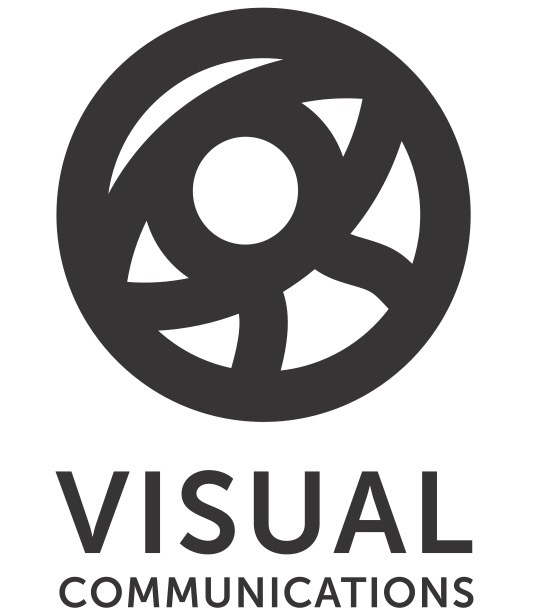 VISUAL COMMUNICATIONS is the nation’s premier Asian American and Pacific Islander media arts organization, dedicated to the honest and accurate portrayals of the Asian Pacific American peoples, communities, and heritage through the media arts. The organization’s mission is to develop and support the voices of Asian American and Pacific Islander filmmakers and media artists who empower communities and challenge perspectives. Visual Communications was created with the understanding that media and the arts are important vehicles to organize and empower communities, and build connections between peoples and generations through the development of AAPI film, video, and media. https://www.vconline.org/
VISUAL COMMUNICATIONS is the nation’s premier Asian American and Pacific Islander media arts organization, dedicated to the honest and accurate portrayals of the Asian Pacific American peoples, communities, and heritage through the media arts. The organization’s mission is to develop and support the voices of Asian American and Pacific Islander filmmakers and media artists who empower communities and challenge perspectives. Visual Communications was created with the understanding that media and the arts are important vehicles to organize and empower communities, and build connections between peoples and generations through the development of AAPI film, video, and media. https://www.vconline.org/
Sites 2021-2024
 THE CHINESE HISTORICAL SOCIETY OF SOUTHERN CALIFORNIA (CHSSC) was organized in 1975 to bring together people with a mutual interest in the important history and historical role of Chinese and Chinese Americans in Southern California; pursue, preserve and communicate knowledge of this history; and promote the heritage of the Chinese and Chinese American community in support of a better appreciation of the rich, multicultural society of the United States. The historical society was established to discover and recognize our pioneers and their history. CHSSC strives to increase awareness of Chinese American heritage through public programs, education and research. https://chssc.org/
THE CHINESE HISTORICAL SOCIETY OF SOUTHERN CALIFORNIA (CHSSC) was organized in 1975 to bring together people with a mutual interest in the important history and historical role of Chinese and Chinese Americans in Southern California; pursue, preserve and communicate knowledge of this history; and promote the heritage of the Chinese and Chinese American community in support of a better appreciation of the rich, multicultural society of the United States. The historical society was established to discover and recognize our pioneers and their history. CHSSC strives to increase awareness of Chinese American heritage through public programs, education and research. https://chssc.org/
 JUNE L. MAZER ARCHIVES is the largest major archive on the West Coast dedicated to preserving and promoting lesbian and feminist history and culture. By creating a safe place for women to explore the richness of lesbian history, perhaps adding to it themselves, we are paving the way for future generations to understand more fully their own identity and history and help maintain this vital link to their own past. We are a vital Lesbian and feminist community resource committed to sharing our history across generations, ethnicity, race, and personal belief systems by collecting, preserving and making available unique memorabilia in a safe and welcoming environment. http://www.mazerlesbianarchives.org/
JUNE L. MAZER ARCHIVES is the largest major archive on the West Coast dedicated to preserving and promoting lesbian and feminist history and culture. By creating a safe place for women to explore the richness of lesbian history, perhaps adding to it themselves, we are paving the way for future generations to understand more fully their own identity and history and help maintain this vital link to their own past. We are a vital Lesbian and feminist community resource committed to sharing our history across generations, ethnicity, race, and personal belief systems by collecting, preserving and making available unique memorabilia in a safe and welcoming environment. http://www.mazerlesbianarchives.org/

LA HISTORIA HISTORICAL SOCIETY MUSEUM is a 501C3 nonprofit organization established in 1998 by residents of the El Monte and South El Monte barrios. The museum’s archival collection focuses largely on visual media and has begun capturing individual narratives through oral histories. La Historia Historical Society Museum aims to make lasting contributions to the cultural identity of Mexican American lives in El Monte and South El Monte by preserving the legacy of its communities. https://www.lahistoriamuseum.org/
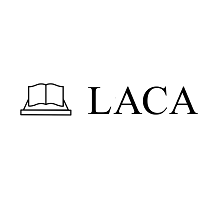 LOS ANGELES CONTEMPORARY ARCHIVE (LACA) is an art archive, library, and exhibition platform that collects underexposed artistic modes of expression happening in our current moment. Challenging established concepts of the archive and art space, LACA sustains a unique experimental environment for critical inquiry, artistic research, and public dialogue. The collection at LACA is artist–run, meaning that living artists are donating, deciding what is valuable and generating language for inventorying their work on their own terms. LACA is not affiliated with a larger institution and as such, it maintains an archive free from limitations associated with prevailing, traditional structures. https://www.lacarchive.com/
LOS ANGELES CONTEMPORARY ARCHIVE (LACA) is an art archive, library, and exhibition platform that collects underexposed artistic modes of expression happening in our current moment. Challenging established concepts of the archive and art space, LACA sustains a unique experimental environment for critical inquiry, artistic research, and public dialogue. The collection at LACA is artist–run, meaning that living artists are donating, deciding what is valuable and generating language for inventorying their work on their own terms. LACA is not affiliated with a larger institution and as such, it maintains an archive free from limitations associated with prevailing, traditional structures. https://www.lacarchive.com/
 SKID ROW HISTORY MUSEUM & ARCHIVE at the Los Angeles Poverty Department houses a living archive of primary and secondary source material on the low income residential community of Los Angeles Skid Row. Primary materials include numerous videos and transcribed interviews with people living and working in Skid Row whose efforts have contributed to envisioning and creating the deep social resources of this recovery neighborhood while resisting its displacement. The archives provide a cultural and social history of the Skid Row Neighborhood. https://www.lapovertydept.org/skid-row-history-museum-archive/
SKID ROW HISTORY MUSEUM & ARCHIVE at the Los Angeles Poverty Department houses a living archive of primary and secondary source material on the low income residential community of Los Angeles Skid Row. Primary materials include numerous videos and transcribed interviews with people living and working in Skid Row whose efforts have contributed to envisioning and creating the deep social resources of this recovery neighborhood while resisting its displacement. The archives provide a cultural and social history of the Skid Row Neighborhood. https://www.lapovertydept.org/skid-row-history-museum-archive/
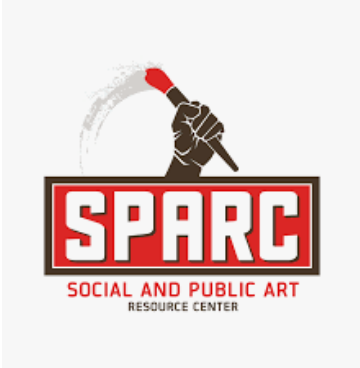 SOCIAL AND PUBLIC ART RESOURCE CENTER’S (SPARC) mission is to produce, preserve, and promote activist and socially relevant artwork; to devise and innovate excellent art pieces through participatory processes; and ultimately, to foster artistic collaborations that empower communities who face marginalization or discrimination. Since its founding in 1976, SPARC has amassed the largest mural archive in the nation spanning the civil rights movement of the 60s and 70s, to the community mural movement of the 90s and 2000s. The collection is as diverse as Los Angeles, including murals by artists of African American, Asian, Native American, and Latinx backgrounds, and early work by women muralists. The conservation of the SPARC mural archive is key to our mission of preserving and presenting public artworks that address the most urgent social issues of each era. SPARC’s works are never simply individually authored endeavors, but rather a collaboration between artists and communities, resulting in art which rises from within the community. https://sparcinla.org/
SOCIAL AND PUBLIC ART RESOURCE CENTER’S (SPARC) mission is to produce, preserve, and promote activist and socially relevant artwork; to devise and innovate excellent art pieces through participatory processes; and ultimately, to foster artistic collaborations that empower communities who face marginalization or discrimination. Since its founding in 1976, SPARC has amassed the largest mural archive in the nation spanning the civil rights movement of the 60s and 70s, to the community mural movement of the 90s and 2000s. The collection is as diverse as Los Angeles, including murals by artists of African American, Asian, Native American, and Latinx backgrounds, and early work by women muralists. The conservation of the SPARC mural archive is key to our mission of preserving and presenting public artworks that address the most urgent social issues of each era. SPARC’s works are never simply individually authored endeavors, but rather a collaboration between artists and communities, resulting in art which rises from within the community. https://sparcinla.org/
 VISUAL COMMUNICATIONS is the nation’s premier Asian American and Pacific Islander media arts organization, dedicated to the honest and accurate portrayals of the Asian Pacific American peoples, communities, and heritage through the media arts. The organization’s mission is to develop and support the voices of Asian American and Pacific Islander filmmakers and media artists who empower communities and challenge perspectives. Visual Communications was created with the understanding that media and the arts are important vehicles to organize and empower communities, and build connections between peoples and generations through the development of AAPI film, video, and media. https://www.vconline.org/
VISUAL COMMUNICATIONS is the nation’s premier Asian American and Pacific Islander media arts organization, dedicated to the honest and accurate portrayals of the Asian Pacific American peoples, communities, and heritage through the media arts. The organization’s mission is to develop and support the voices of Asian American and Pacific Islander filmmakers and media artists who empower communities and challenge perspectives. Visual Communications was created with the understanding that media and the arts are important vehicles to organize and empower communities, and build connections between peoples and generations through the development of AAPI film, video, and media. https://www.vconline.org/
Sites 2020–2021
 CHICANA POR MI RAZA DIGITAL MEMORY COLLECTIVE (CPMR) is a group of researchers, educators, students, archivists and technologists dedicated to preserving imperiled Chicanx and Latinx histories of the long Civil Rights Era. The project has traveled to over one dozen states to collect hundreds of hours of oral histories with notable Chicanas, Latinas, and allies. CPMR provides broad‐based public access to oral histories, material culture, correspondence, and rare out‐of‐print publications for use in both scholarly research and the classroom. https://chicanapormiraza.org/
CHICANA POR MI RAZA DIGITAL MEMORY COLLECTIVE (CPMR) is a group of researchers, educators, students, archivists and technologists dedicated to preserving imperiled Chicanx and Latinx histories of the long Civil Rights Era. The project has traveled to over one dozen states to collect hundreds of hours of oral histories with notable Chicanas, Latinas, and allies. CPMR provides broad‐based public access to oral histories, material culture, correspondence, and rare out‐of‐print publications for use in both scholarly research and the classroom. https://chicanapormiraza.org/
 THE CHINESE HISTORICAL SOCIETY OF SOUTHERN CALIFORNIA (CHSSC) was organized in 1975 to bring together people with a mutual interest in the important history and historical role of Chinese and Chinese Americans in Southern California; pursue, preserve and communicate knowledge of this history; and promote the heritage of the Chinese and Chinese American community in support of a better appreciation of the rich, multicultural society of the United States. The historical society was established to discover and recognize our pioneers and their history. CHSSC strives to increase awareness of Chinese American heritage through public programs, education and research. https://chssc.org/
THE CHINESE HISTORICAL SOCIETY OF SOUTHERN CALIFORNIA (CHSSC) was organized in 1975 to bring together people with a mutual interest in the important history and historical role of Chinese and Chinese Americans in Southern California; pursue, preserve and communicate knowledge of this history; and promote the heritage of the Chinese and Chinese American community in support of a better appreciation of the rich, multicultural society of the United States. The historical society was established to discover and recognize our pioneers and their history. CHSSC strives to increase awareness of Chinese American heritage through public programs, education and research. https://chssc.org/
 JUNE L. MAZER ARCHIVES is the largest major archive on the West Coast dedicated to preserving and promoting lesbian and feminist history and culture. By creating a safe place for women to explore the richness of lesbian history, perhaps adding to it themselves, we are paving the way for future generations to understand more fully their own identity and history and help maintain this vital link to their own past. We are a vital Lesbian and feminist community resource committed to sharing our history across generations, ethnicity, race, and personal belief systems by collecting, preserving and making available unique memorabilia in a safe and welcoming environment. http://www.mazerlesbianarchives.org/
JUNE L. MAZER ARCHIVES is the largest major archive on the West Coast dedicated to preserving and promoting lesbian and feminist history and culture. By creating a safe place for women to explore the richness of lesbian history, perhaps adding to it themselves, we are paving the way for future generations to understand more fully their own identity and history and help maintain this vital link to their own past. We are a vital Lesbian and feminist community resource committed to sharing our history across generations, ethnicity, race, and personal belief systems by collecting, preserving and making available unique memorabilia in a safe and welcoming environment. http://www.mazerlesbianarchives.org/

LA HISTORIA HISTORICAL SOCIETY MUSEUM is a 501C3 nonprofit organization established in 1998 by residents of the El Monte and South El Monte barrios. The museum’s archival collection focuses largely on visual media and has begun capturing individual narratives through oral histories. La Historia Historical Society Museum aims to make lasting contributions to the cultural identity of Mexican American lives in El Monte and South El Monte by preserving the legacy of its communities. https://www.lahistoriamuseum.org/
 SAADA creates a more inclusive society by giving voice to South Asian Americans through documenting, preserving, and sharing stories that represent their unique and diverse experiences. Since its founding in 2008, SAADA has enabled academics, artists, journalists, students, and community members to write books, create new content, and shape public understanding about the South Asian American community. Further, through digital storytelling initiatives such as its First Days Project (sharing stories from immigrants and refugees about their arrival in the U.S.) and Road Trips Project (sharing stories of travel to reframe an American tradition),SAADA reimagines the potential of community archives in the digital era. http://www.saada.org
SAADA creates a more inclusive society by giving voice to South Asian Americans through documenting, preserving, and sharing stories that represent their unique and diverse experiences. Since its founding in 2008, SAADA has enabled academics, artists, journalists, students, and community members to write books, create new content, and shape public understanding about the South Asian American community. Further, through digital storytelling initiatives such as its First Days Project (sharing stories from immigrants and refugees about their arrival in the U.S.) and Road Trips Project (sharing stories of travel to reframe an American tradition),SAADA reimagines the potential of community archives in the digital era. http://www.saada.org
 SKID ROW HISTORY MUSEUM & ARCHIVE at the Los Angeles Poverty Department houses a living archive of primary and secondary source material on the low income residential community of Los Angeles Skid Row. Primary materials include numerous videos and transcribed interviews with people living and working in Skid Row whose efforts have contributed to envisioning and creating the deep social resources of this recovery neighborhood while resisting its displacement. The archives provide a cultural and social history of the Skid Row Neighborhood. https://www.lapovertydept.org/skid-row-history-museum-archive/
SKID ROW HISTORY MUSEUM & ARCHIVE at the Los Angeles Poverty Department houses a living archive of primary and secondary source material on the low income residential community of Los Angeles Skid Row. Primary materials include numerous videos and transcribed interviews with people living and working in Skid Row whose efforts have contributed to envisioning and creating the deep social resources of this recovery neighborhood while resisting its displacement. The archives provide a cultural and social history of the Skid Row Neighborhood. https://www.lapovertydept.org/skid-row-history-museum-archive/
 SOCIAL AND PUBLIC ART RESOURCE CENTER’S (SPARC) mission is to produce, preserve, and promote activist and socially relevant artwork; to devise and innovate excellent art pieces through participatory processes; and ultimately, to foster artistic collaborations that empower communities who face marginalization or discrimination. Since its founding in 1976, SPARC has amassed the largest mural archive in the nation spanning the civil rights movement of the 60s and 70s, to the community mural movement of the 90s and 2000s. The collection is as diverse as Los Angeles, including murals by artists of African American, Asian, Native American, and Latinx backgrounds, and early work by women muralists. The conservation of the SPARC mural archive is key to our mission of preserving and presenting public artworks that address the most urgent social issues of each era. SPARC’s works are never simply individually authored endeavors, but rather a collaboration between artists and communities, resulting in art which rises from within the community. https://sparcinla.org/
SOCIAL AND PUBLIC ART RESOURCE CENTER’S (SPARC) mission is to produce, preserve, and promote activist and socially relevant artwork; to devise and innovate excellent art pieces through participatory processes; and ultimately, to foster artistic collaborations that empower communities who face marginalization or discrimination. Since its founding in 1976, SPARC has amassed the largest mural archive in the nation spanning the civil rights movement of the 60s and 70s, to the community mural movement of the 90s and 2000s. The collection is as diverse as Los Angeles, including murals by artists of African American, Asian, Native American, and Latinx backgrounds, and early work by women muralists. The conservation of the SPARC mural archive is key to our mission of preserving and presenting public artworks that address the most urgent social issues of each era. SPARC’s works are never simply individually authored endeavors, but rather a collaboration between artists and communities, resulting in art which rises from within the community. https://sparcinla.org/
 VISUAL COMMUNICATIONS is the nation’s premier Asian American and Pacific Islander media arts organization, dedicated to the honest and accurate portrayals of the Asian Pacific American peoples, communities, and heritage through the media arts. The organization’s mission is to develop and support the voices of Asian American and Pacific Islander filmmakers and media artists who empower communities and challenge perspectives. Visual Communications was created with the understanding that media and the arts are important vehicles to organize and empower communities, and build connections between peoples and generations through the development of AAPI film, video, and media. https://www.vconline.org/
VISUAL COMMUNICATIONS is the nation’s premier Asian American and Pacific Islander media arts organization, dedicated to the honest and accurate portrayals of the Asian Pacific American peoples, communities, and heritage through the media arts. The organization’s mission is to develop and support the voices of Asian American and Pacific Islander filmmakers and media artists who empower communities and challenge perspectives. Visual Communications was created with the understanding that media and the arts are important vehicles to organize and empower communities, and build connections between peoples and generations through the development of AAPI film, video, and media. https://www.vconline.org/
Sites 2019–2020

THE CENTER FOR THE STUDY OF POLITICAL GRAPHICS (CSPG) is an educational and research archive that collects, preserves, documents, and exhibits posters relating to historical and contemporary movements for social change. Using its more than 90,000 human rights and protest posters and prints, CSPG creates traveling and online thematic exhibitions, and publications. CSPG is advancing the power of art to educate and inspire people to action. http://www.politicalgraphics.org/
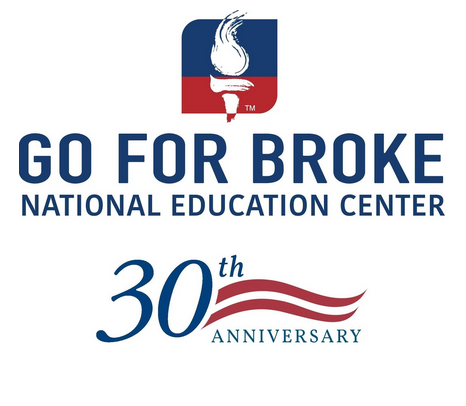
GO FOR BROKE NATIONAL EDUCATION CENTER (GFBNEC) educates the public on the valor of Japanese American veterans of World War II and their contributions to democracy. Our goal is to inspire new generations to embody the Nisei veterans core values of courage, sacrifice, equality, humility and patriotism. Founded in 1989, GFBNEC maintains the Go For Broke Monument and the interactive Defining Courage exhibition in downtown Los Angeles, as well as extensive oral histories and archives, education and training programs, and other initiatives. http://www.goforbroke.org/
 JUNE L. MAZER ARCHIVES is the largest major archive on the West Coast dedicated to preserving and promoting lesbian and feminist history and culture. By creating a safe place for women to explore the richness of lesbian history, perhaps adding to it themselves, we are paving the way for future generations to understand more fully their own identity and history and help maintain this vital link to their own past.We are a vital Lesbian and feminist community resource committed to sharing our history across generations, ethnicity, race, and personal belief systems by collecting, preserving and making available unique memorabilia in a safe and welcoming environment. http://www.mazerlesbianarchives.org/
JUNE L. MAZER ARCHIVES is the largest major archive on the West Coast dedicated to preserving and promoting lesbian and feminist history and culture. By creating a safe place for women to explore the richness of lesbian history, perhaps adding to it themselves, we are paving the way for future generations to understand more fully their own identity and history and help maintain this vital link to their own past.We are a vital Lesbian and feminist community resource committed to sharing our history across generations, ethnicity, race, and personal belief systems by collecting, preserving and making available unique memorabilia in a safe and welcoming environment. http://www.mazerlesbianarchives.org/
 SKID ROW HISTORY MUSEUM & ARCHIVE at the Los Angeles Poverty Department houses a living archive of primary and secondary source material on the low income residential community of Los Angeles Skid Row. Primary materials include numerous videos and transcribed interviews with people living and working in Skid Row whose efforts have contributed to envisioning and creating the deep social resources of this recovery neighborhood while resisting its displacement. The archives provide a cultural and social history of the Skid Row Neighborhood. https://www.lapovertydept.org/skid-row-history-museum-archive/
SKID ROW HISTORY MUSEUM & ARCHIVE at the Los Angeles Poverty Department houses a living archive of primary and secondary source material on the low income residential community of Los Angeles Skid Row. Primary materials include numerous videos and transcribed interviews with people living and working in Skid Row whose efforts have contributed to envisioning and creating the deep social resources of this recovery neighborhood while resisting its displacement. The archives provide a cultural and social history of the Skid Row Neighborhood. https://www.lapovertydept.org/skid-row-history-museum-archive/
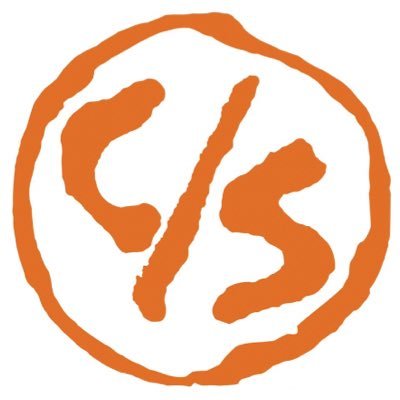
UCLA CHICANO STUDIES RESOURCE CENTER (CSRC) has played a pivotal role in the development of scholarly research on the Chicano-Latino population, which is now the largest minority group in the United States. Our research mission is supported by five distinct components: a library with special collections archive, an academic press, collaborative research projects, public programs and community-based partnerships, and a competitive grants and fellowships program. https://www.chicano.ucla.edu/
 VISUAL COMMUNICATIONS is the nation’s premier Asian American and Pacific Islander media arts organization, dedicated to the honest and accurate portrayals of the Asian Pacific American peoples, communities, and heritage through the media arts. The organization’s mission is to develop and support the voices of Asian American and Pacific Islander filmmakers and media artists who empower communities and challenge perspectives. Visual Communications was created with the understanding that media and the arts are important vehicles to organize and empower communities, and build connections between peoples and generations through the development of AAPI film, video, and media. https://www.vconline.org/
VISUAL COMMUNICATIONS is the nation’s premier Asian American and Pacific Islander media arts organization, dedicated to the honest and accurate portrayals of the Asian Pacific American peoples, communities, and heritage through the media arts. The organization’s mission is to develop and support the voices of Asian American and Pacific Islander filmmakers and media artists who empower communities and challenge perspectives. Visual Communications was created with the understanding that media and the arts are important vehicles to organize and empower communities, and build connections between peoples and generations through the development of AAPI film, video, and media. https://www.vconline.org/
Sites 2018–2019
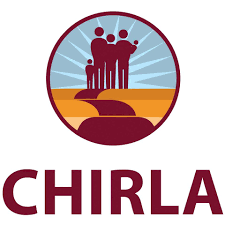 COALITION FOR HUMANE IMMIGRANT RIGHTS OF LOS ANGELES (CHIRLA) is a California leader with national impact made of diverse immigrant families and individuals who act as agents of social change to achieve a world with freedom of mobility, full human rights, and true participatory democracy. CHIRLA’s mission is to achieve a just society fully inclusive of immigrants. CHIRLA organizes and serves individuals, institutions and coalitions to build power, transform public opinion, and change policies to achieve full human, civil and labor rights. https://www.chirla.org
COALITION FOR HUMANE IMMIGRANT RIGHTS OF LOS ANGELES (CHIRLA) is a California leader with national impact made of diverse immigrant families and individuals who act as agents of social change to achieve a world with freedom of mobility, full human rights, and true participatory democracy. CHIRLA’s mission is to achieve a just society fully inclusive of immigrants. CHIRLA organizes and serves individuals, institutions and coalitions to build power, transform public opinion, and change policies to achieve full human, civil and labor rights. https://www.chirla.org
 JUNE L. MAZER ARCHIVES is the largest major archive on the West Coast dedicated to preserving and promoting lesbian and feminist history and culture. By creating a safe place for women to explore the richness of lesbian history, perhaps adding to it themselves, we are paving the way for future generations to understand more fully their own identity and history and help maintain this vital link to their own past. We are a vital Lesbian and feminist community resource committed to sharing our history across generations, ethnicity, race, and personal belief systems by collecting, preserving and making available unique memorabilia in a safe and welcoming environment. http://www.mazerlesbianarchives.org/
JUNE L. MAZER ARCHIVES is the largest major archive on the West Coast dedicated to preserving and promoting lesbian and feminist history and culture. By creating a safe place for women to explore the richness of lesbian history, perhaps adding to it themselves, we are paving the way for future generations to understand more fully their own identity and history and help maintain this vital link to their own past. We are a vital Lesbian and feminist community resource committed to sharing our history across generations, ethnicity, race, and personal belief systems by collecting, preserving and making available unique memorabilia in a safe and welcoming environment. http://www.mazerlesbianarchives.org/

LA HISTORIA HISTORICAL SOCIETY MUSEUM is a 501C3 nonprofit organization established in 1998 by residents of the El Monte and South El Monte barrios. The museum’s archival collection focuses largely on visual media and has begun capturing individual narratives through oral histories. La Historia Historical Society Museum aims to make lasting contributions to the cultural identity of Mexican American lives in El Monte and South El Monte by preserving the legacy of its communities. https://www.lahistoriamuseum.org/
 SAADA creates a more inclusive society by giving voice to South Asian Americans through documenting, preserving, and sharing stories that represent their unique and diverse experiences. Since its founding in 2008, SAADA has enabled academics, artists, journalists, students, and community members to write books, create new content, and shape public understanding about the South Asian American community. Further, through digital storytelling initiatives such as its First Days Project (sharing stories from immigrants and refugees about their arrival in the U.S.) and Road Trips Project (sharing stories of travel to reframe an American tradition),SAADA reimagines the potential of community archives in the digital era. http://www.saada.org
SAADA creates a more inclusive society by giving voice to South Asian Americans through documenting, preserving, and sharing stories that represent their unique and diverse experiences. Since its founding in 2008, SAADA has enabled academics, artists, journalists, students, and community members to write books, create new content, and shape public understanding about the South Asian American community. Further, through digital storytelling initiatives such as its First Days Project (sharing stories from immigrants and refugees about their arrival in the U.S.) and Road Trips Project (sharing stories of travel to reframe an American tradition),SAADA reimagines the potential of community archives in the digital era. http://www.saada.org
 THE BOB BAKER MARIONETTE THEATER was founded in 1963 by puppeteer Bob Baker, who had been making puppets and performing shows since the mid 1930’s. Today, the Theater’s archive includes over 6,000 LPs, hundreds of books on Hollywood, fairytales, and puppetry, and extensive documentation and concept art spanning the Theater’s 55 year history. Many of the objects are left just as Bob left them after his passing in 2014, and an extensive inventory and digitization process has begun with the intention of sharing the collection with fans and scholars alike.
THE BOB BAKER MARIONETTE THEATER was founded in 1963 by puppeteer Bob Baker, who had been making puppets and performing shows since the mid 1930’s. Today, the Theater’s archive includes over 6,000 LPs, hundreds of books on Hollywood, fairytales, and puppetry, and extensive documentation and concept art spanning the Theater’s 55 year history. Many of the objects are left just as Bob left them after his passing in 2014, and an extensive inventory and digitization process has begun with the intention of sharing the collection with fans and scholars alike.
http://www.bobbakermarionettetheater.com/
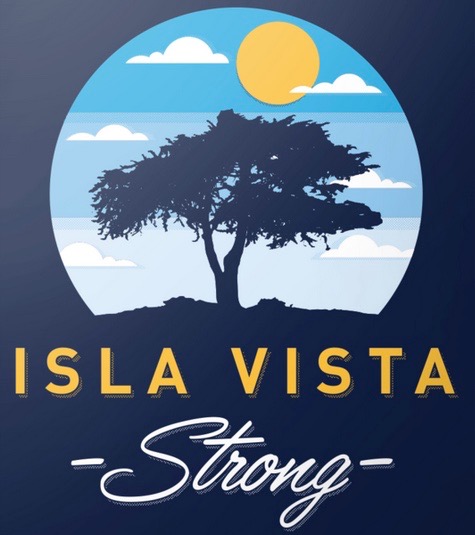 THE MAY 23, 2014 ISLA VISTA MEMORIAL ARCHIVE at UC Santa Barbara consists of condolence items left at spontaneous memorial sites, items sent to the university, and materials reflecting the campus’ response to the event. On May 23, 2014 the community of Isla Vista, which is adjacent to UCSB, was the site of a violent rampage in which six UCSB students were killed and 14 other persons were injured. This collection serves as a lasting memorial to the victims of this tragedy, and documents how our community came together to respond to a horrific act of violence. https://www.library.ucsb.edu/special-collections/isla-vista-memorial-project
THE MAY 23, 2014 ISLA VISTA MEMORIAL ARCHIVE at UC Santa Barbara consists of condolence items left at spontaneous memorial sites, items sent to the university, and materials reflecting the campus’ response to the event. On May 23, 2014 the community of Isla Vista, which is adjacent to UCSB, was the site of a violent rampage in which six UCSB students were killed and 14 other persons were injured. This collection serves as a lasting memorial to the victims of this tragedy, and documents how our community came together to respond to a horrific act of violence. https://www.library.ucsb.edu/special-collections/isla-vista-memorial-project
 THE SKID ROW HISTORY MUSEUM & ARCHIVE at the Los Angeles Poverty Department houses a living archive of primary and secondary source material on the low income residential community of Los Angeles Skid Row. Primary materials include numerous videos and transcribed interviews with people living and working in Skid Row whose efforts have contributed to envisioning and creating the deep social resources of this recovery neighborhood while resisting its displacement. The archives provide a cultural and social history of the Skid Row Neighborhood. https://www.lapovertydept.org/skid-row-history-museum-archive/
THE SKID ROW HISTORY MUSEUM & ARCHIVE at the Los Angeles Poverty Department houses a living archive of primary and secondary source material on the low income residential community of Los Angeles Skid Row. Primary materials include numerous videos and transcribed interviews with people living and working in Skid Row whose efforts have contributed to envisioning and creating the deep social resources of this recovery neighborhood while resisting its displacement. The archives provide a cultural and social history of the Skid Row Neighborhood. https://www.lapovertydept.org/skid-row-history-museum-archive/
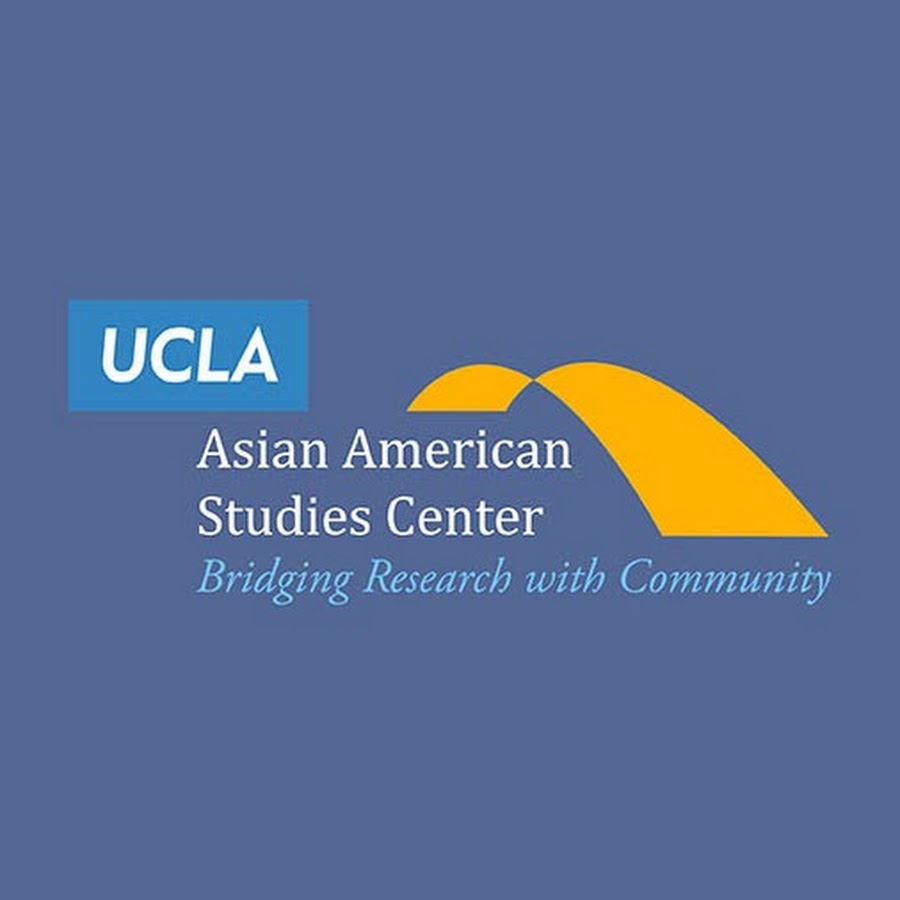 UCLA ASIAN AMERICAN STUDIES CENTER LIBRARY/READING ROOM has long been recognized as one of the leading and focused special collections of printed Asian American and Pacific Islander materials in the United States. The library’s collection includes over 5,000 books and monographs, along with rare and unique collections of popular and scholarly magazines, ‘zines, journals, and ethnic community newspapers from across the nation. It has long been recognized as one of the leading and focused special collections of printed Asian American and Pacific Islander materials in the United States. http://www.aasc.ucla.edu/library/
UCLA ASIAN AMERICAN STUDIES CENTER LIBRARY/READING ROOM has long been recognized as one of the leading and focused special collections of printed Asian American and Pacific Islander materials in the United States. The library’s collection includes over 5,000 books and monographs, along with rare and unique collections of popular and scholarly magazines, ‘zines, journals, and ethnic community newspapers from across the nation. It has long been recognized as one of the leading and focused special collections of printed Asian American and Pacific Islander materials in the United States. http://www.aasc.ucla.edu/library/
 VISUAL COMMUNICATIONS is the nation’s premier Asian American and Pacific Islander media arts organization, dedicated to the honest and accurate portrayals of the Asian Pacific American peoples, communities, and heritage through the media arts. The organization’s mission is to develop and support the voices of Asian American and Pacific Islander filmmakers and media artists who empower communities and challenge perspectives. Visual Communications was created with the understanding that media and the arts are important vehicles to organize and empower communities, and build connections between peoples and generations through the development of AAPI film, video, and media. https://www.vconline.org/
VISUAL COMMUNICATIONS is the nation’s premier Asian American and Pacific Islander media arts organization, dedicated to the honest and accurate portrayals of the Asian Pacific American peoples, communities, and heritage through the media arts. The organization’s mission is to develop and support the voices of Asian American and Pacific Islander filmmakers and media artists who empower communities and challenge perspectives. Visual Communications was created with the understanding that media and the arts are important vehicles to organize and empower communities, and build connections between peoples and generations through the development of AAPI film, video, and media. https://www.vconline.org/